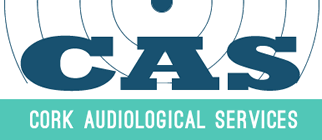Audiologist: Your Questions Answered
- Apr 18, 2023
- 4 min read
Updated: Feb 12, 2024
Cork Audiological Services is one of Ireland's most established audiologist services. For over two decades, we have helped hundreds of patients with their specific hearing issues. Due to this experience, we understand how potentially distressing it can be when a GP recommends that a person visits an audiologist. We're used to answering the many questions new patients have. Therefore to make this information more accessible to patients, we have compiled some of the most common questions below. Please remember that the below is for general information purposes only and is not a substitute for medical advice.
What is an audiologist?
An audiologist is a healthcare professional who specialises in helping people with hearing and balance disorders. They are experts in assessing and diagnosing hearing problems and related conditions. They work with patients of all ages, from newborns to seniors, to provide personalised care and treatment options that best suit their needs.
Audiologists can help people with various hearing-related issues, including hearing loss, tinnitus, and balance disorders. They use a variety of techniques and tools to evaluate their patients' hearing, such as hearing tests and may prescribe hearing aids, cochlear implants, or other assistive devices to help improve their patients' hearing and quality of life.
In addition to treating hearing and balance disorders, audiologists educate and counsel patients and their families on communication strategies and how to cope with their condition. They work closely with other healthcare professionals to ensure their patients receive comprehensive care addressing their health needs.
What does an audiologist do?
An audiologist, their main goal is to help people with hearing and balance issues. They work with patients of all ages, from infants to seniors, to assess, diagnose, and treat various hearing problems.
When a patient visits an audiologist, they typically perform a series of hearing tests to determine the extent of their hearing loss or other hearing issues. Depending on the test results, the audiologist may recommend hearing aids or other assistive devices to help the patient hear better.
Audiologists also provide hearing rehabilitation therapy, including auditory training, speechreading, and counselling to help patients adjust to hearing loss and improve their communication skills.
In addition to treating hearing-related issues, audiologists help patients with balance disorders. They use specialised tests to diagnose and treat conditions like vertigo or dizziness. They may also work with patients to develop strategies to manage their symptoms and reduce the impact of their balance disorder on their daily lives.
Audiologists provide personalised care to their patients and work closely with other healthcare professionals to ensure they receive the best care for their hearing and balance issues.
Can an audiologist prescribe hearing aids?
As licensed healthcare professionals, audiologists are qualified to prescribe and fit hearing aids and other assistive devices for patients who require them. Prescribing and fitting hearing aids are one of the core responsibilities of an audiologist.
When a patient visits an audiologist for a hearing evaluation, the audiologist will determine whether or not hearing aids are necessary based on the results of the tests. If the patient needs hearing aids, the audiologist will help them choose the right type based on their hearing loss, lifestyle, and personal preferences.
Audiologists are trained to fit hearing aids properly to ensure they are comfortable and practical for the patient. They can also provide follow-up care, including hearing aid maintenance and adjustments, to ensure that the patient continues to receive the maximum benefit from their hearing aids over time.
So if you're experiencing hearing loss, don't hesitate to see an audiologist! They can help you find the right hearing aid solution to improve your quality of life.
How do I prepare for an audiology test?
Preparing for an audiology test can be pretty simple! Here are a few steps that you can take to ensure that you are ready for your appointment:
1. Write down any questions or concerns you may have: Before your appointment, take a few minutes to write down any questions or concerns about your hearing or balance. This will help you to remember everything you want to discuss with your audiologist during your appointment.
2. Please bring a list of medications: It is essential to bring a list of any medications you are currently taking to your appointment, as some medications can affect hearing or balance.
3. Avoid loud noises: To ensure that your hearing test is accurate, it is recommended that you avoid exposure to loud noises for at least 24 hours before your appointment.
4. Please bring a friend or family member: It can be helpful to bring a friend or family member to your appointment. They can offer support and help you remember important information discussed during the appointment.
5. Wear comfortable clothing: Finally, wear comfortable clothing to your appointment. This will help you to relax and feel at ease during the hearing test.
Remember, audiology tests are non-invasive and painless, so there is no need to be nervous. We are here to help you, so don't hesitate to ask any questions or express any concerns you may have.
The above is not a complete list; you will surely have more questions about your specific condition. So please call our reception desk and schedule an appointment today.





Comments